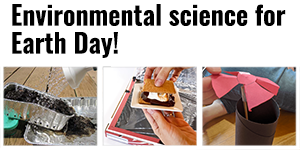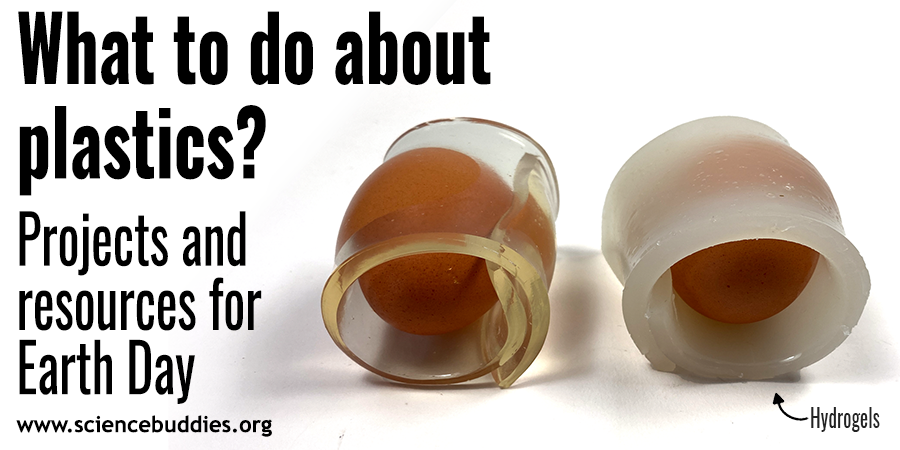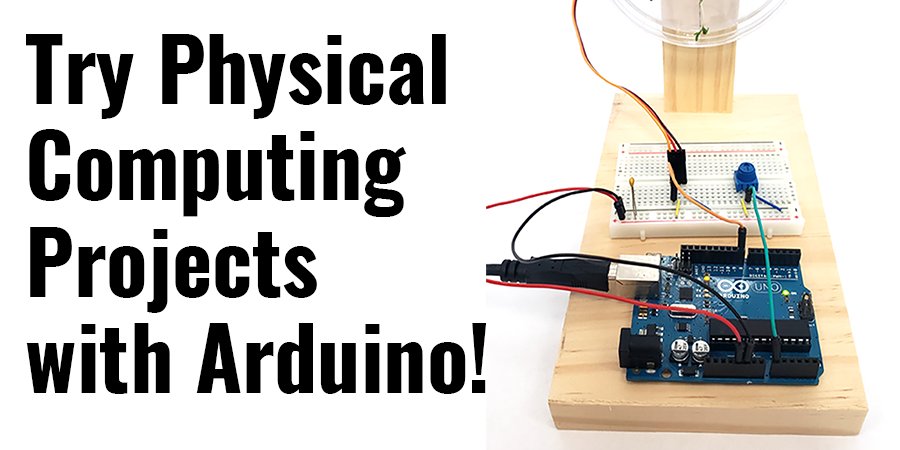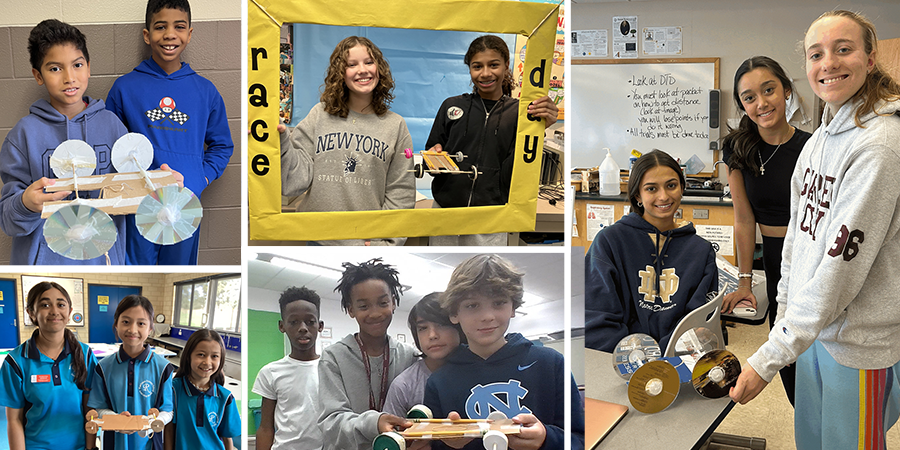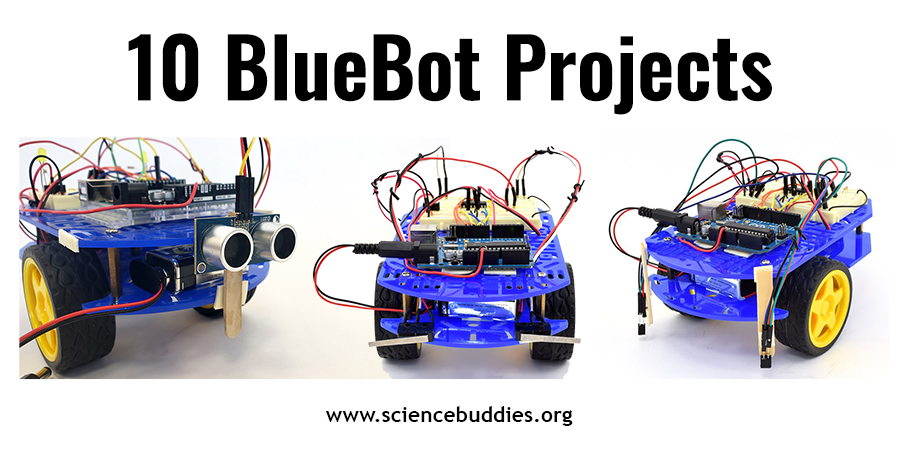Beat Brain Drain with Summer Science
Student "brain drain" during the summer is more than just media hype. Statistics on academic loss offer a cautionary tale, but taking steps to infuse summer fun with summer science can help keep critical skills in motion. Summer science might be just the synapse boost your student needs to bridge the days between school years!

Summer is a great time for students to engage in big and small science projects at home—no grades required! Doing science in the summer can help keep important academic skills fresh. Plus, summer science can be fun! What will your students question, discover, build, or explore this summer? (Image: Bigstock)
If you feel torn trying to sort out how to balance the need to pay tribute to the "break" of summer and still keep your kids' brains on track, you are not alone. Summer shakes up familiar routines and schedules. Bedtimes may get an extension, and TVs might get more airtime, but even as you give your kids some needed downtime, keep in mind that research shows that school-age children are at risk of losing up to two months of learning over the summer. It's a startling statistic, one that should be a motivator for parents. Letting your students get sucked into a summer daze can have repercussions in the coming school year, so take extra care in making sure that summer activities offer a nice balance of "just for fun" and "fun with an educational twist."
Science That Isn't for an Assignment
Creating opportunities throughout the summer that use important reading and math skills is important, and longer summer days and less structured schedules can add up to perfect opportunities for science exploration and exciting science activities that let your students have fun while putting cognitive and creative skills to use. With no "classroom" assignment to rein them in, summer gives students the chance to explore science questions and topics of their own choosing and without needing to juggle other homework. Summer science is about the science, not the grade, a simple reality that frees students up to explore—just because. With no project display board requirement and no research paper to turn in, students get to dive in and enjoy the fun part—the hands-on investigation.
Kickstart a Summer Science Exploration
During the school year, thousands of students use Science Buddies Project Ideas for class assignments and science fairs. Many of these projects are also great for at-home exploration, either solo or as a family activity. The following suggestions highlight a few summer-friendly science explorations from our library of Project Ideas:
 Shimmy Shimmy Soda Pop: Develop Your Own Soda Pop Recipe: Mix up and sample your own carbonated beverages while you explore the chemical reaction that occurs when you mix baking soda and citric acid. How much of each ingredient do you need to create the perfect drink? What happens to the drink when the amounts of each ingredients change? What does it mean for a soda to be flat? Can your bubbly soda be too bubbly? Have you ever dumped lemonade crystals into a bottle of carbonated water and had it bubble up and overflow the bottle? Have you twisted the lid off of a bottle of homemade seltzer and had the cap fly into the air? What's going on? This food science project is perfect for the aspiring chemist, the kitchen scientist, or even the chef-in-training.
Shimmy Shimmy Soda Pop: Develop Your Own Soda Pop Recipe: Mix up and sample your own carbonated beverages while you explore the chemical reaction that occurs when you mix baking soda and citric acid. How much of each ingredient do you need to create the perfect drink? What happens to the drink when the amounts of each ingredients change? What does it mean for a soda to be flat? Can your bubbly soda be too bubbly? Have you ever dumped lemonade crystals into a bottle of carbonated water and had it bubble up and overflow the bottle? Have you twisted the lid off of a bottle of homemade seltzer and had the cap fly into the air? What's going on? This food science project is perfect for the aspiring chemist, the kitchen scientist, or even the chef-in-training.  Build Your Own Crystal Radio: Get hands on in this electronics project and wire your own crystal radio to pick up AM stations without plugs or batteries. What stations can you tap in your neighborhood? This project is a great exploration for the budding electrician or electronics enthusiast. Turn things around, and you can make your own DIY transmitter to learn more about how radio stations are broadcast. Really ambitious? Go full circle and set up your own crystal radio to pick up your own transmissions!
Build Your Own Crystal Radio: Get hands on in this electronics project and wire your own crystal radio to pick up AM stations without plugs or batteries. What stations can you tap in your neighborhood? This project is a great exploration for the budding electrician or electronics enthusiast. Turn things around, and you can make your own DIY transmitter to learn more about how radio stations are broadcast. Really ambitious? Go full circle and set up your own crystal radio to pick up your own transmissions!- Rocketology: Baking Soda + Vinegar = Lift Off!: For some students, science fun in the sun is all about things that pop, boom, float, or fly. This chemistry project gives new zest—and combustion—to experiments with baking soda and vinegar. The volcanoes in the sand you remember from your preschool days were fun, but this project kicks things up a notch. What's not to love about blasting empty film canisters into the air? For more explosive fun, try Coke® & Mentos®—Nucleation Goes Nuclear!. What's the difference between a chemical reaction and a physical reaction? This soda geyser can help you find out.
 The Chemistry of Clean: Make Your Own Soap to Study Soap Synthesis: A great choice for the DIY-type, the aspiring chemist, or the soap enthusiast, this chemistry project explores the process of making soap—and how you "purify" soap using salt. If mixing up custom, non-edible concoctions is up your student's alley, you might also encourage making lip balm or exploring the art of making perfume.
The Chemistry of Clean: Make Your Own Soap to Study Soap Synthesis: A great choice for the DIY-type, the aspiring chemist, or the soap enthusiast, this chemistry project explores the process of making soap—and how you "purify" soap using salt. If mixing up custom, non-edible concoctions is up your student's alley, you might also encourage making lip balm or exploring the art of making perfume.
 Veggie Power!: This energy-focused exploration of fruits and vegetables as power sources is excellent for the "green"-minded student and electronics fan. What kinds of foods generate the most power? Head to the produce aisle for an assortment of fruits and vegetables you can put to the test. What can you power with foods from the vegetable bin?
Veggie Power!: This energy-focused exploration of fruits and vegetables as power sources is excellent for the "green"-minded student and electronics fan. What kinds of foods generate the most power? Head to the produce aisle for an assortment of fruits and vegetables you can put to the test. What can you power with foods from the vegetable bin?- Do You Have the Willpower to Taste Something Sour?: Mix up batches of lemonade and put your family and friend's sour power to the test. What trends can you spot? Combine this project with Shimmy, Shimmy Soda Pop (above) for added twist, or take it a step further with the "Do You Love the Taste of Food? Find Out if You're a Supertaster!" project. Put an end to dinner-table arguments about what's too salty, too spicy, or too sour by figuring out just how many taste buds you have. Is anyone in your family a supertaster? A bit of blue food coloring can reveal your tongue's papillae truth.
 Got video game?: If spending time playing one video game or another is how you plan to spend a large chunk of your summer, why not shake things up and create your own game? Put what you already know about what makes a game great into developing your own game for friends and family to try. Tools like GameMaker can help get you started, and younger designers can get a fun introduction to video game design basics by completing quests and building games in Gamestar Mechanic. For a more immersive summer video game design experience, check out Gamestar Mechanic's new four-week summer online learning program. Designed especially for students ages 10-14, the online course extends the Gamestar Mechanic experience and gives students the benefit of working with a professional game design mentor.
Got video game?: If spending time playing one video game or another is how you plan to spend a large chunk of your summer, why not shake things up and create your own game? Put what you already know about what makes a game great into developing your own game for friends and family to try. Tools like GameMaker can help get you started, and younger designers can get a fun introduction to video game design basics by completing quests and building games in Gamestar Mechanic. For a more immersive summer video game design experience, check out Gamestar Mechanic's new four-week summer online learning program. Designed especially for students ages 10-14, the online course extends the Gamestar Mechanic experience and gives students the benefit of working with a professional game design mentor.- The Chills and Thrills of Roller-Coaster Hills: If you'll be hitting the coasters at an amusement park, this project will guide you in building and using a homemade accelerometer you can take along to learn more about acceleration and gravity on your favorite rides. Which rides are most thrilling—and why? For more hands-on fun exploring the science behind roller coasters, build an at-home marble run. Grab some foam tubing, and create your own monster marble ride! The potential energy is there, ready and waiting, for a super summer investigation!
- How Sweet It Is! Explore the Roles of Color and Sugar Content in Hummingbirds' Food Preferences.: For the backyard birder or budding zoologist, this project lets you turn your window-view into a simple zoology experiment. What happens if you offer different colors of food to hummingbirds? Is the color most important? Or is the amount of sugar what really counts? Set up some testing feeders and see what happens! You can also experiment with bird seed to learn more about the preferences of birds in your area.
Several of the Project Ideas listed above are available in kit format. Ordering a Science Buddies Kit makes it easy to hand over a box of science goodness to an older student. Everything you need (except perishable items) will arrive in the box!
Investigate a Hobby
If your students spend summer days pursuing a favorite pastime or sport, encourage them to explore, question, test, and think about the science at work behind their favorite activities.
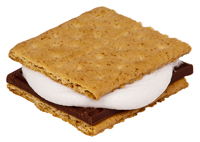
Vacation Science
Taking a mini-trip? Have a family vacation scheduled? With a bit of planning, you can map out exciting science opportunities on trips of all sizes. Depending on where you are going, encourage students to learn more about local birds, wildlife, fauna, or terrain. Are there examples of bioluminescence in the area? There's plenty to explore while camping, too. From marshmallows, to crickets, to navigation, being out in the woods can boost your family science. (Make marshmallows at home before you head out and then experiment with s'mores techniques by the campfire.) See our blog round-up of campground science suggestions for more ideas. If car or plane travel is part of your vacation plan, carry along a box of science trivia cards to help pass the miles! Finally, no matter where you go, even if it's just to a corner park, encourage students to document sightings and record observations—or to sketch things they imagine—in a journal. (Image: Evan-Amos, Wikipedia.)
Summer Reading
As one of the two academic areas most at risk during the summer months, daily reading is a summer must. As you and your students scour the shelves and reading lists for summer choices, be sure and pepper the list with science-themed titles. From fiction with a science twist to accessible, engaging, and potentially mind-boggling non-fiction titles, there are great science choices for students of all ages. Stay tuned for our suggested summer reading list for older readers and for parents! (See also suggestions for math-related reading and manga and cartoon science picks.)
Science for All Ages
While you may want to encourage your older students to tackle independent summer science investigations, summer is a great time for family science activities that can be fun for all ages. Our list of Project Ideas for Home contains suggestions for easy-to-do projects that don't take a lot of preparation, don't take long to complete, and can be done with basic household materials you might already have on hand. Many of these are perfect for doing with younger students. You will also find family-centered adaptations of Science Buddies projects at Scientific American's Bring Science Home.
Stay Tuned
We will be highlighting other summer science ideas in the coming days and weeks! We would love to know what you try, what projects your family does, what science books you read, and how you and your students keep the science learning going all summer long. Share your stories by sending email to amy@sciencebuddies.org. Have a picture to go along with your summer science fun? We'd love to see!
Categories:
You Might Also Enjoy These Related Posts:
- 15 STEM Gifts & Science Kits You'll Feel Good About Giving
- 13 Boat Science and Submarine Science Projects and Experiments
- July 4th STEM! Summer Science Picks for Independence Day!
- 12 Science Kits for Summer Science Experiments and Discovery
- 15 Science Projects to Make and Give for Father's Day
- Ready, Set, Go! (Awesome Summer Science Experiments)
- Awesome Summer Science Experiments
- 10 STEM Activities with Cardboard Tubes



